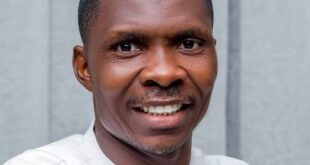By Kelechi Nwaucha
Youth restiveness and agitations in the Niger Delta have refused to lay to rest despite Federal Government’s efforts and initiatives aimed at assuaging the feelings of youths in the region.
The seeming inadequacy of these initiatives, according to publisher of the National Point Newspaper, Chief Constance Meju, however, can be traced to government’s lack of proper understanding of the main issues behind these agitations in the Niger Delta.
She made this known while fielding questions from journalists on the sidelines of an interactive session with the National Council for Climate Change, organized by Kebetkache for civil society groups, media and community persons in Port Harcourt.
Meju, who is also coordinator of the Center for Media, Environment and Development Communications, as well as board member of Kebetkache Women Development and Resource Center, pointed out that the “so-called laziness of the Niger Delta youths” is traceable to the degradation of the land, caused by oil exploration activities, “thus, pushing the youths to a path of restiveness.
“I’ve always called on the government to say, first of all, that the national does not really understand the problem of the Niger Delta.
“They identified flood and waste. Yes, these are issues in the Niger Delta, but the greatest issue is land degradation. And it is land degradation that has pushed our youth out of the traditional livelihood source (farming and fishing) that is making them look lazy and forcing them even to go and start looking for oil to thief.”
Meju however urged Niger Delta youths to realize that “the environment is our own,” adding that “my appeal to the youth is take it easy. Let us not completely destroy ourselves because we have no other place.”
She noted that on the part of the government, “we have not seen sincerity. We have not seen that understanding that Niger Delta is important.
“If 70% (from oil) is what the economy of the country is based on, for God’s sake, in another country, there will be serious attention on that zone. But it has not been so. Government needs to address the problems in the Niger Delta. Our youths need employment.
“I came from a community in Delta State, Okpokrika-Ogbesu. They have no light in 2024. They have no secondary school. They have no road linking them to the next community. It’s a riverline community. To access them by water is 45 minutes. And to go there, that’s to the nearest point, Aboh, which is their local government, will cost them 15,000 to go and come. How many women can afford 15,000 for a visit? So they are forced to be locked in.
“I also observed that when we were asking them to write their names, there was massive illiteracy. And I got ashamed because I used to boast that Delta State has a high literacy rate. But it’s not so.
“So our governments, whether federal, state or local governments, they have to be kind to the people. Every day we hear of 500 million, 1 billion, or these being taken away. Please, what will it cost to put a borehole in a community that is riverline? It will not cost much. Give them water. Give them hope. Give them the feeling that they are part of the state and part of the Nigeria.”
Meju pointed out that “the agitations we have all over the country is from resistance. People, youths are resisting the fact that, oh, you don’t see them as part of the country. Look at what happened in Okuama. If you trace, it’s oil related. And why? It’s unemployment related.
“These people don’t have the basic things, just basic social amenities. There’s no water. They are surrounded by water, but they can’t drink water. Where we parked our boat, one woman was filtering cassava, cassava paste, with the smoke and oil from our engine. Is that not health hazard.
“So we need to be a little kind to the people. The local governments, the state governments, they need to wake up. Even if the federal doesn’t do, look at what (Alex) Otti is doing in Abia (State). Let us show that we can change the system,” she said.
 PH Mundial – Port Harcourt Online Newspaper News Across The Region
PH Mundial – Port Harcourt Online Newspaper News Across The Region





